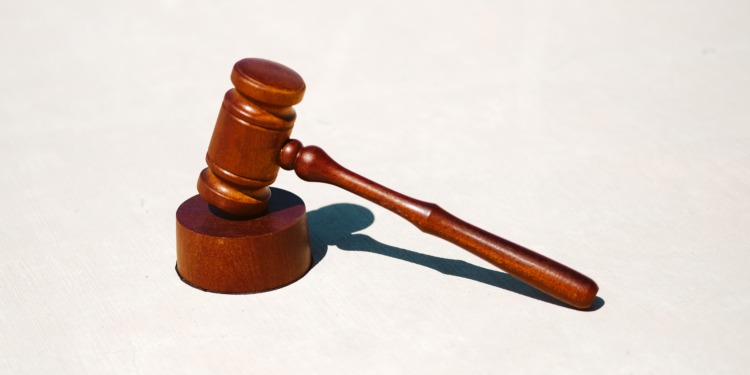On Monday, June 5, the highest court in Hong Kong overturned a ruling against investigative journalist Bao Choy, marking an essential win for freedom of press and speech.
Bao Choy was arrested and found guilty in 2021 on two counts for making false statements to obtain vehicle registration documents concerning the perpetrators of the attack on protestors, journalists and bystanders in the Yuen Long district in 2019.
Hong Kong journalist Bao Choy’s conviction for making false statements to access vehicle records has been quashed after five judges ruled unanimously in favour of her appeal at the city’s top court.
In full: https://t.co/m81R80f14p
Photo: Candice Chau/HKFP. pic.twitter.com/vCRbwgvv7K
— Hong Kong Free Press HKFP (@hkfp) June 5, 2023
Bao Choy was working as a freelance journalist for the government-owned Radio Television Hong Kong (RTHK), where she was investigating the assault on protestors on July 21, 2019, in the subway station of the northern district of Yuen Long for her documentary “7.21 Who Owns the Truth.” She was looking into both the attack’s perpetrators and the ensuing slow police response time of over 39 minutes.
Three years ago, on 7.21, #HongKong witnessed the Triads being let loose to attack innocent HongKongers in Yuen Long station. These thugs were encouraged by pro-Beijing lawmakers and the police.
721 is the date when many HongKongers no longer believe that the rule of law exists. pic.twitter.com/Co29HMzQQX
— Fight For Freedom. Stand With Hong Kong. 重光團隊 (@Stand_with_HK) July 20, 2022
The attack was carried out by 100 individuals wearing white t-shirts and using sticks and poles to injure protestors. The assault was one of the most violent events of the wave of mass protests in Hong Kong in 2019 in response to a law allowing the extradition of individuals from Hong Kong to mainland China.
The law was highly controversial as it would endanger citizens living in Hong Kong (of any nationality) by allowing China to prosecute them for actions that are not considered crimes in Hong Kong. Although Hong Kong is semi-autonomous, its “one country, two systems” rule has allowed the city to exert its own judicial system and conduct individual extradition treaties.
Officials said that Hong Kong courts would still have been able to make final decisions over whether or not an individual would be extradited. Yet, the director of Amnesty International HK, MK Tam, said that “[t]he courts will have very little power to reject any extradition request.”
Still, the law would have been very consequential for individuals residing in Hong Kong, as explained by Human Rights Watch’s Sophie Richardson in 2019: “No one will be safe, including activists, human rights lawyers, journalists, and social workers.”
The mainland system frequently disregards human rights and the rule of law, encompassing various laws that limit fundamental freedoms, thus exposing Hong Kong residents to dangerous and unfair trials.
Related Articles: China Crackdown on Hong Kong Activists: Andy Li Faces Life Imprisonment | Is Taiwan Still a ‘Beacon of Democracy’ in the Chinese World? | China’s Censors Go Into Overdrive for Tiananmen Square Anniversary
Two million of Hong Kong’s seven million population flooded the streets to protest the law, which was eventually dropped (although the government did pass the National Security Law in 2020, which enabled the crackdown on protesters and heightened Beijing’s authority over the city).
The protest in Yuen Long was one of the many protests against the extradition law.
To investigate the perpetrators of the attack, Bao Choy had to access vehicle registration records. To do so, she had to select one of the following options on a dropdown menu:
- “transport-related legal proceedings”
- “sale and purchase of vehicle”
- “other traffic and transportation matters”
She chose the latter, which led to a lower court fining her HK$6000, equivalent to US$765. The lower court argued that “interviewing and reporting are not related to traffic and transport purposes.” The ruling was a display of oppression against journalists and freedom of speech, as the Court of Final Appeals said, “substantial and grave injustice” was done to Choy.
The city’s higher court, however, overturned the ruling, as it found that “there is no reason to proceed from a starting point that bona fide journalism should be excluded from the phrase ‘[o]ther traffic and transport related matters’.”
Indeed, Hong Kong was ranked 140 out of 180 in 2022 and 148 out of 180 in 2023 by Reporters Without Borders’ annual index on press freedom, a drop from placing 18 in 2002, a consequence of the National Security Act that chipped away at freedom of the press and speech, according to them.
Many outlets were forced to close, such as the Apple Daily and Stand News. Investigative journalism is under threat.
The ruling is very significant for freedom of the press and speech within Hong Kong. Bao Choy’s victorious appeal is thus important, especially as the ruling was unanimous amongst the five presiding judges.
Choy shared her happiness while emphasising the impact of the ruling on a larger scale:
“[The ruling] states the importance of the constitutionally protected freedom of the press and of the speech, and I think that is the biggest significance of today’s ruling.”
Editor’s Note: The opinions expressed here by the authors are their own, not those of Impakter.com — In the Featured Photo: Brown wooden gavel Featured Photo Credit: Tingey Injury Law Firm










